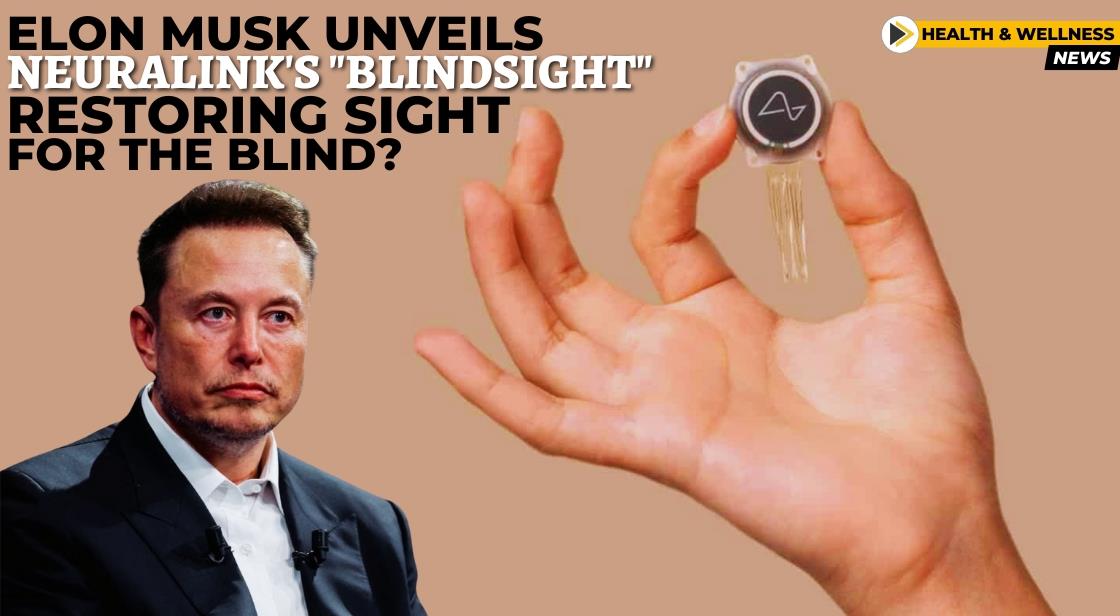Elon Musk Unveils Neuralink's "Blindsight": Restoring Sight for the Blind?

News Synopsis
Elon Musk, the visionary entrepreneur behind Tesla and SpaceX, has unveiled a groundbreaking new project at Neuralink, his brain-computer interface company. This ambitious initiative, called "Blindsight," aims to restore sight to individuals who are blind or have lost vision completely.
Neuralink's "Blindsight": A New Hope for Vision Restoration
During a recent appearance at VivaTech, Musk presented a video showcasing a Neuralink patient successfully controlling a computer cursor using their mind. This impressive feat was followed by the much-anticipated announcement of "Blindsight."
"Blindsight will directly interface with the optical processing areas of the brain," explained Musk, "enabling people who have lost both eyes or have no eyesight whatsoever to see." This technology has the potential to revolutionize the lives of millions by addressing a wide range of vision-related issues.
While details remain scarce, Musk's vision for "Blindsight" suggests a neural implant that would stimulate the visual cortex of the brain, potentially creating a form of artificial vision. This advancement builds upon the success of Neuralink's first human trials, which focused on a brain-computer interface called "Telepathy."
Telepathy Paves the Way for Future Advancements
Telepathy allows users with paralysis or other debilitating conditions to control electronic devices using their thoughts. This initial technology represents a significant step forward in the field of brain-computer interfaces, offering new possibilities for communication and independence for individuals with disabilities.
Ethical Considerations and the Future of AI
While the potential benefits of Neuralink's technology are undeniable, Musk acknowledges the ethical considerations surrounding brain-computer interfaces and the integration of AI with the human brain. He emphasizes the importance of developing "truth-seeking" AI and ensuring responsible implementation of these technologies.
One of the key challenges, according to Musk, lies in communication bandwidth. He ponders, "How quickly can we communicate with our…digital tertiary self?" This question highlights the need for advancements in neural interface technology to facilitate seamless communication between the human brain and AI systems.
The future of Neuralink's "Blindsight" and its impact on vision restoration remains to be seen. However, this announcement marks a significant milestone in the field of brain-computer interfaces and offers renewed hope for individuals living with blindness.
Conclusion
Neuralink's "Blindsight" represents a bold and potentially transformative step towards restoring sight for the blind. While the technology remains under development, the success of "Telepathy" in human trials demonstrates the viability of brain-computer interfaces.
As Musk acknowledges, ethical considerations and responsible AI development are crucial aspects that need to be addressed alongside technological advancements. The question of communication bandwidth between the brain and AI systems highlights the need for further innovation.
Overall, Neuralink's "Blindsight" offers a glimpse into a future where brain-computer interfaces can not only improve communication and independence for individuals with disabilities but also address vision loss and potentially other neurological conditions. The journey towards this future will require collaboration between scientists, engineers, ethicists, and policymakers to ensure the safe and responsible development of this groundbreaking technology.